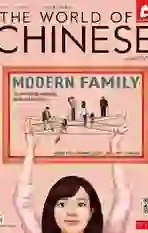Contract coupling: Why some LESBIANS
2018-10-20H.L.LINDAQIAN
H. L. LINDA QIAN
When Sun Wenlin and Hu Mingliang, a couple living in Changsha, were refused a same-sex marriage certificate by their local civil affairs bureau, the pair took the matter to court. As Sun told the media, theyd read the PRCs Marriage Law cover-to-cover six times—and there wasnt a single mention that marriage must only be between a man and a woman.
Known as Chinas first civil case advancing LGBTQ marriage rights, Sun and Hus lawsuit, filed in January 2016, was dismissed in April the same year, after judges determined that civil codes and “relevant statutes” on marriage registration considered heterosexual marriage to be the only legal kind on the mainland. Afterwards, Sun received regular messages on social media, from both fellow activists and members of the public wishing to share their feelings about the controversial event.
Though by and large supportive, some in the queer community worried it was dangerous for Sun to make waves. News site iFeng.com spoke to one, a Wuhan resident referred to as Xiao Hen, who admired the nerve of Sun and Hu, but believed their actions might turn public feelings against gay marriage. Xiao Hen had chosen a solution that, for others in the community, is eqaully extreme, though characteristic of the Chinese context: Entering into a xingshi hunyin or xinghun (形婚, “contract marriage”) with a lesbian friend to please his family.
Statistics about these marriages are hard to come by, but xinghun matchmaking site ChinaGayles reported at least 390,000 users in 2015. An estimated 16 million “queer wives” (同妻)—women married to closeted gay men—are also believed to exist; researchers and queer activists say voluntary xinghun is the more “humane” option compared to marrying heterosexual women, who are more vulnerable to emotional and physical abuse.
After their traditional wedding “wine banquet,” Xiao Hen has never asked his xinghun partner to visit his family, though they still ask when the couple are going to have children. Other xinghun relationships are even more complicated. He Xiaopei and Yuan Yuans 2013 documentary, Our Marriages: When Lesbians Marry Gay Men, featured two lesbian couples who met and fell in love while all four were looking for gay men to marry. The film follows their extravagant “heterosexual” weddings with gay men and day-to-day lives afterwards, all under one roof. Throughout the film, He argues that xinghun offers a creative way for young queers to navigate cultural and sociopolitical pressures in a society with traditional family values.
Not everyone received this message positively, though. “There is a lot of discrimination against people who enter into contract marriages. Some say that women who are lesbians should not ‘deceive their parents; others say having a contract marriage is surrendering to patriarchal institutions,” He told one audience at a 2015 screening of her film. On ChinaGayLes users cite the desire to have children as a good reason for such contracts since surrogacy is outlawed in China, while single and adoptive parents face daunting legal hurdles.
Ling Jueding, founder of (now defunct) gay matchmaking app ZANK, believes neither xinghun nor lawsuits fulfill the larger bigger obligation—changing public opinion. His solution? A lavish, media-attended “wedding” with his partner, performed the day after the US Supreme Court legalized gay marriage in 2015, to“[live] life well as a queer person, thus influencing society,” as Ling told iFeng.
“The ‘contract marriage concept is interesting…because even heterosexual marriage is a contract; each partner has conditions for the other,” Taiwanese feminist scholar Li Genfang pointed out at Hes screening. “[Xinghun] puts the inherent complexities of marriage to light.” Or, as one of the films subjects declares, “All marriages are about putting on a show anyway.”
